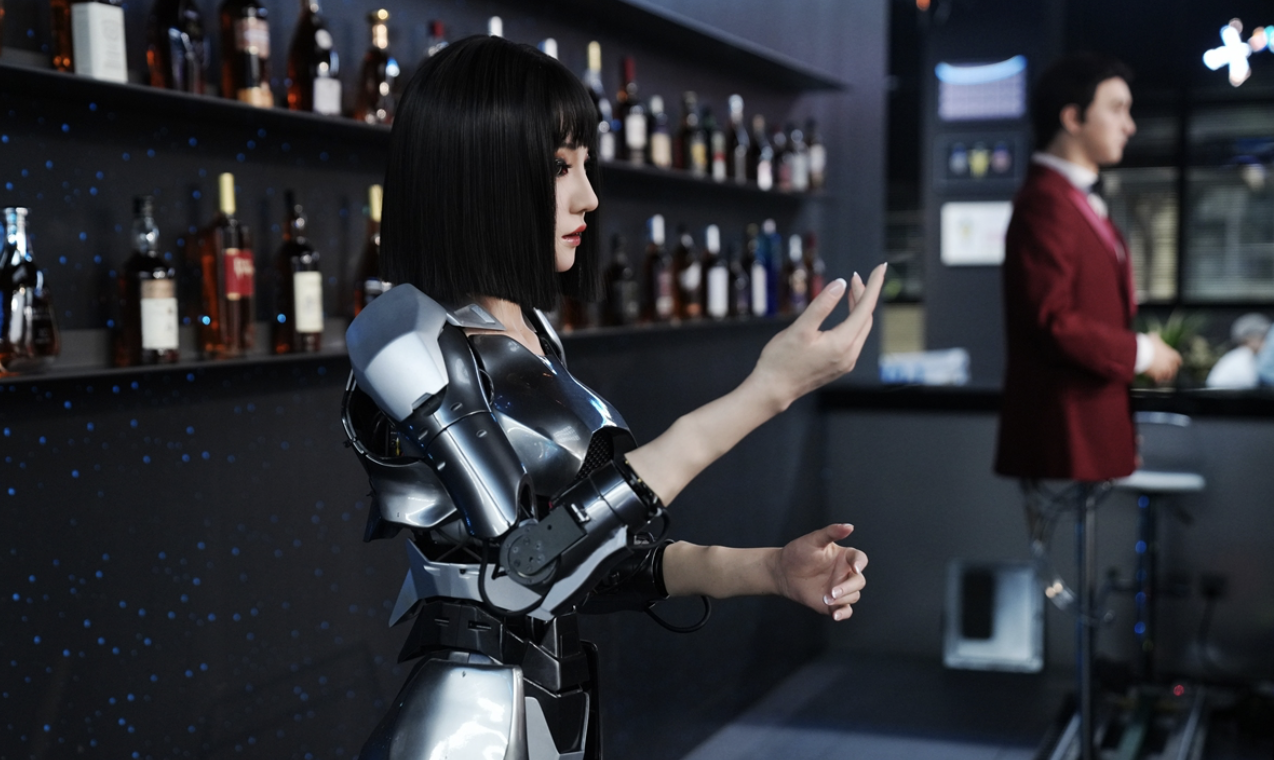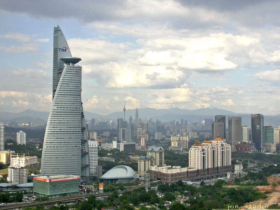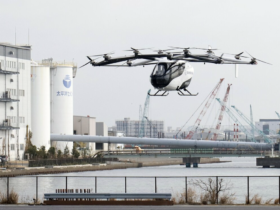BEIJING, Aug 7 – The world’s first 4S store dedicated to embodied artificial intelligence (AI) robots—Robot Mall—is set to open in Beijing on Friday, a move widely considered as China’s latest push to commercialize advanced robotics and build a comprehensive industrial ecosystem in this fast-evolving sector.
Located in the robotics industrial park in Bejing’s Yizhuang, the southeastern suburb also known as the Beijing Economic-Technological Development Area (Beijing E-Town), the 4S store showcases more than 50 robots across seven major categories, including medical, manufacturing, companion, bionic, bipedal humanoid, integrated, and wheeled humanoid robots.
Highlights include dancing robotic dogs in lion dance costumes, humanoid robots capable of traditional Chinese medicine dispensing, and machines that can flip pancakes, brew coffee, shoot basketballs, paint, and even overcome obstacle courses.
Robotics giants on display include Tiangong from the Beijing Humanoid Robot Innovation Center, Unitree Robotics’ G1, and UBTECH Robotics’ Walker S, representing some of the most advanced humanoid platforms in China.
The facility will debut alongside the 2025 World Robot Conference, which runs from August 8 to 12 under the theme “Making Robots Smarter, Making Embodied Agents More Intelligent.” The event will showcase over 1,500 products from more than 200 leading robotics companies from around the world, according to a statement the organizer sent to Global Times earlier.
Similar to automotive 4S shops that offer Sale, Spare parts, Service, and Survey, this robot-focused store goes further by addressing the full life cycle of robotics: from R&D and testing to real-world deployment.
Spread across four floors and covering 4,000 square meters, the store serves as both a product showroom and service hub for the country’s burgeoning humanoid robot industry.
The ground floor features immersive demonstrations of robots in both industrial and medical applications. On the second floor, visitors enter a futuristic space equipped with brain-computer interfaces, robotic arms, and interactive exhibits.
The store also presents an integrated service model for robot component replacement, diagnostics, and remote operations and maintenance on the third floor, with the fourth floor serving as a premium business negotiation area, designed to facilitate targeted industrial matchmaking and cooperation.
The Robot Mall brings together more than 50 robot models from over 40 manufacturers across China, with more than 30 of those companies based outside of Beijing. “This is a national showcase for humanoid robots,” said Wang Yifan, the store manager, Beijing Daily reported on Thursday.
The Robot Mall currently represents the 1.0 version of the 4S store, but plans are already underway for a 2.0 upgrade, which is expected to debut in November 2025. The future version will incorporate more robot types and offer even richer real-world scenarios, continuing to push the boundaries of embodied AI commercialization in China, the newspaper said.
“The establishment of the world’s first 4S store for embodied AI robots marks a key step in building a vibrant robotics industry ecosystem in the Yizhuang area,” Liang Liang, deputy director of Yizhuang’s administrative committee said earlier. “It paves the way for the rapid development of robotics firms and enhances Yizhuang’s global influence as a robotics hub.”
Adjacent to the 4S store, a robot-themed restaurant will also open its door on Friday, offering a fully automated, AI-driven dining and retail experience. Marketed as a “fantasy experience,” the venue immerses guests in a futuristic world.
In 2024, China accounted for two-thirds of global robot patent applications and produced 556,000 industrial robots, remaining the world’s top manufacturer.
Yizhuang has become a major cluster for robotics and smart manufacturing in China, now home to over 300 enterprises in the sector. The area boasts a robotics industry chain valued at over 10 billion yuan ($1.39 billion)—accounting for half of Beijing’s total robotics output, according to Xinhua News Agency.






















Leave a Reply